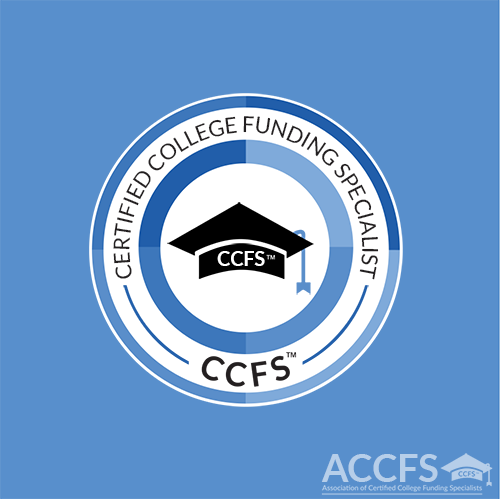Section 1
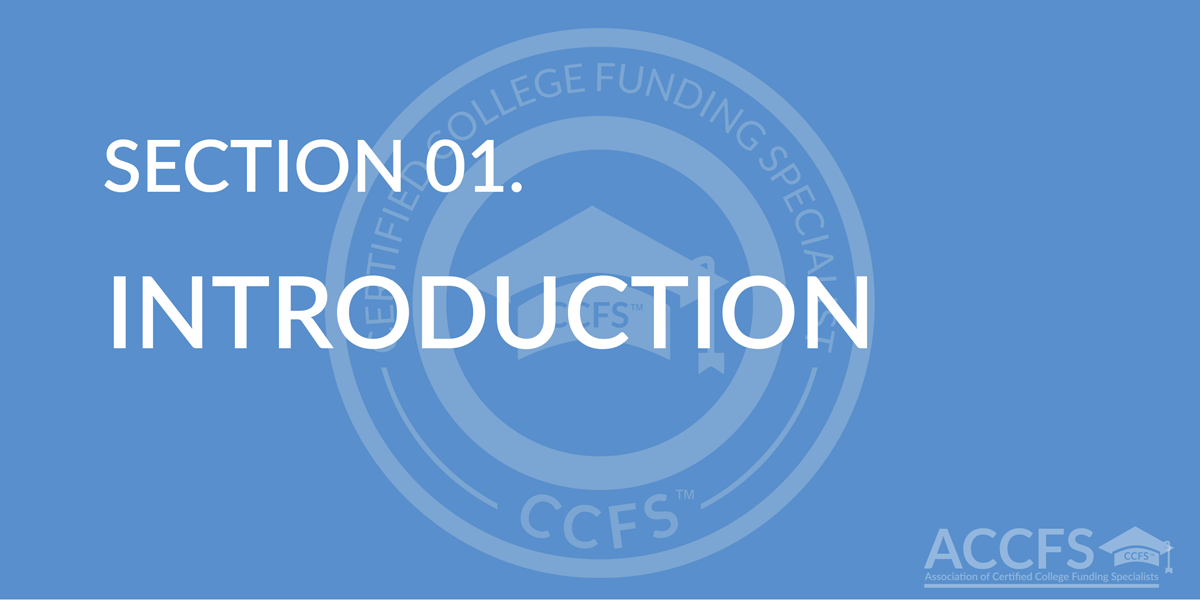
Introduction
Introduction to the background of the CCFS® designation and the Association of Certified College Funding Specialists™.
Section 2
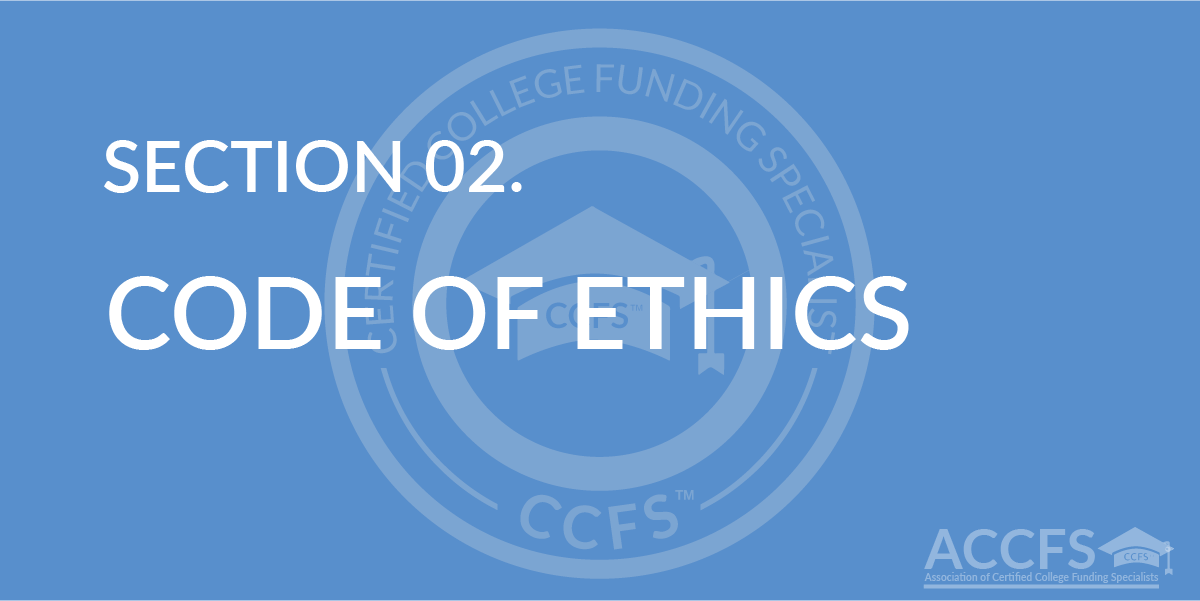
Code of Ethics
Code of Ethics adopted by the Association of Certified College Funding Specialists to guide all persons who have been certified to use the CCFS® (Certified College Funding Specialist™) designation.
Section 3

Admissions
The role of the college admissions department and how it works together with the financial aid department to serve the best interest of students and making their transition to college seamless.
Section 4
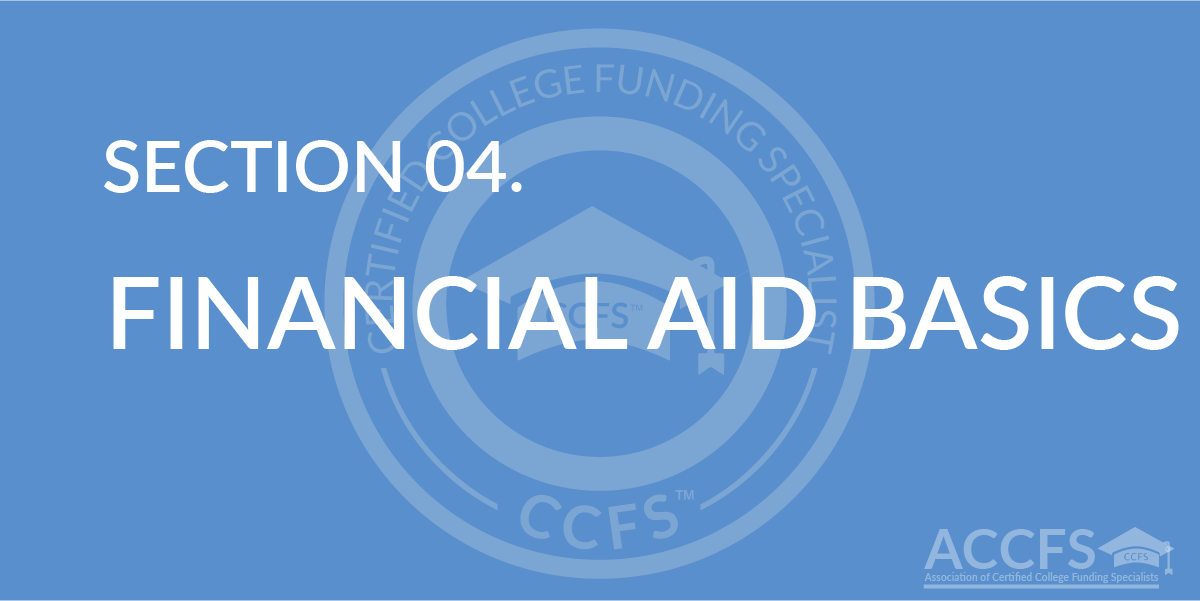
Financial Aid Basics
Before you can help your clients dramatically reduce their cost of college, you must first understand the basics of financial aid and how to help your clients compete for a much higher percentage of scholarship and grant money from the colleges.
Section 5
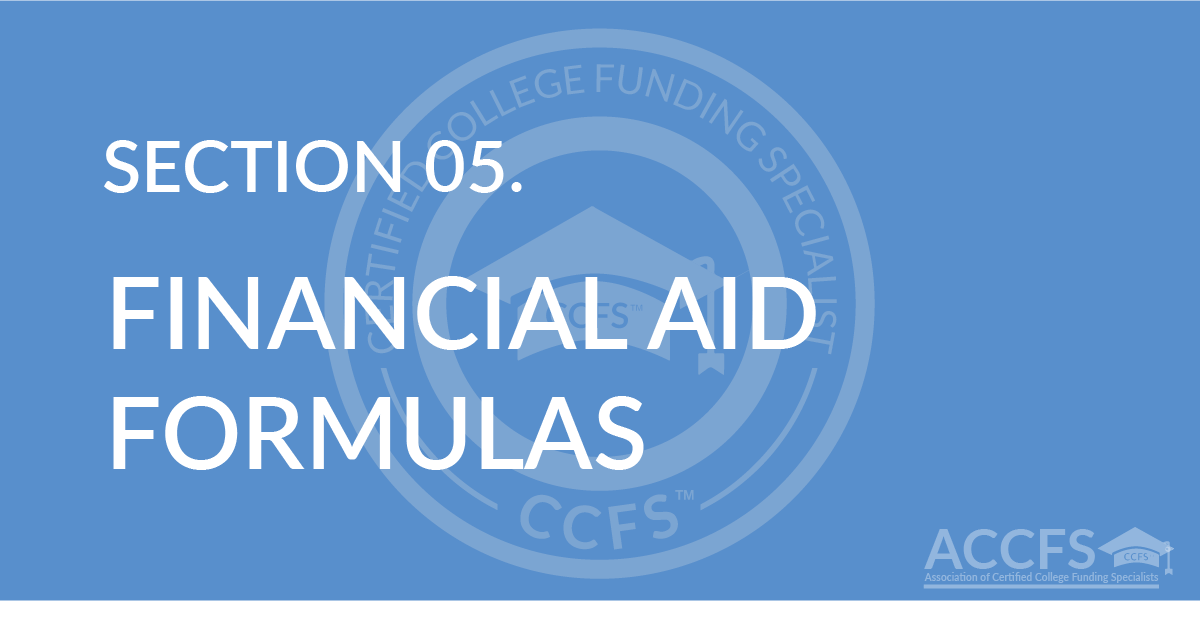
Financial Aid Formulas
Every accredited college in the United States uses your client’s income and assets to calculate the Expected Family Contribution (EFC) to determine your client’s ability to pay for college.
Section 6
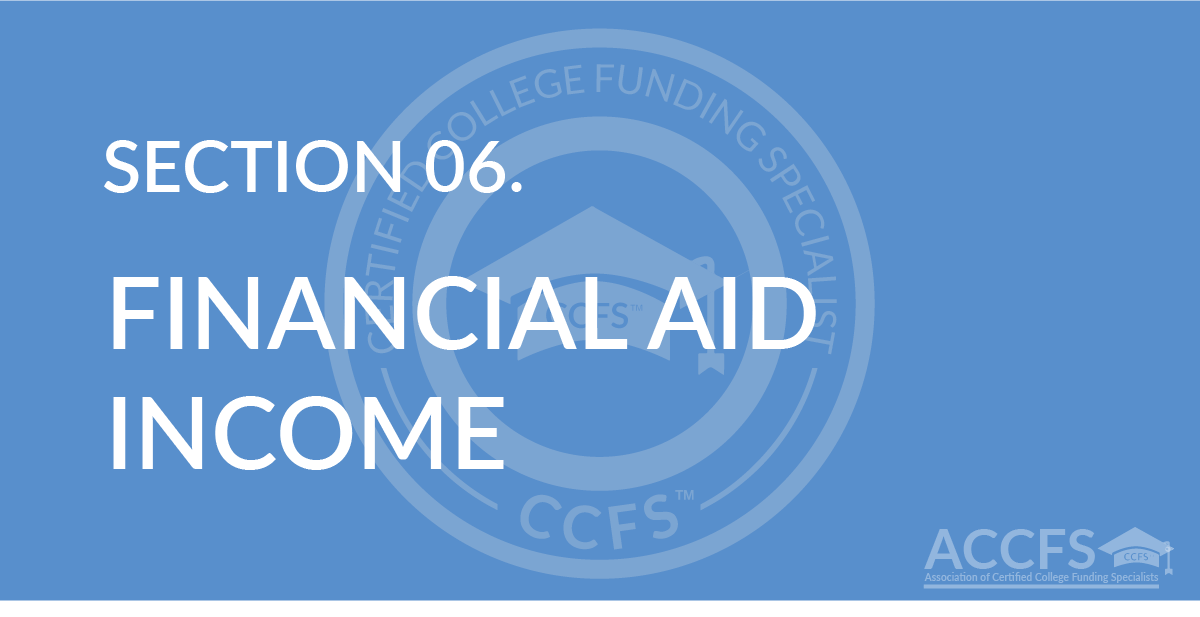
Financial Aid Income
How your client’s income is assessed in the Expected Family Contribution (EFC) financial aid formulas.
Section 7
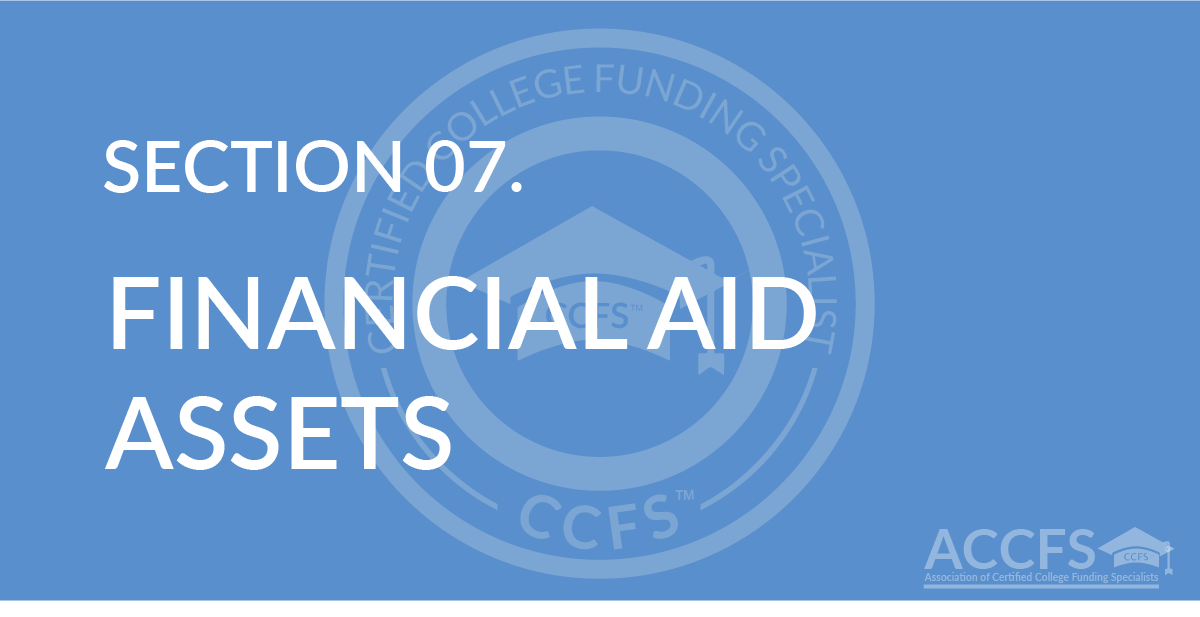
Financial Aid Assets
How your client’s income is assessed in the Expected Family Contribution (EFC) financial aid formulas.
Section 8
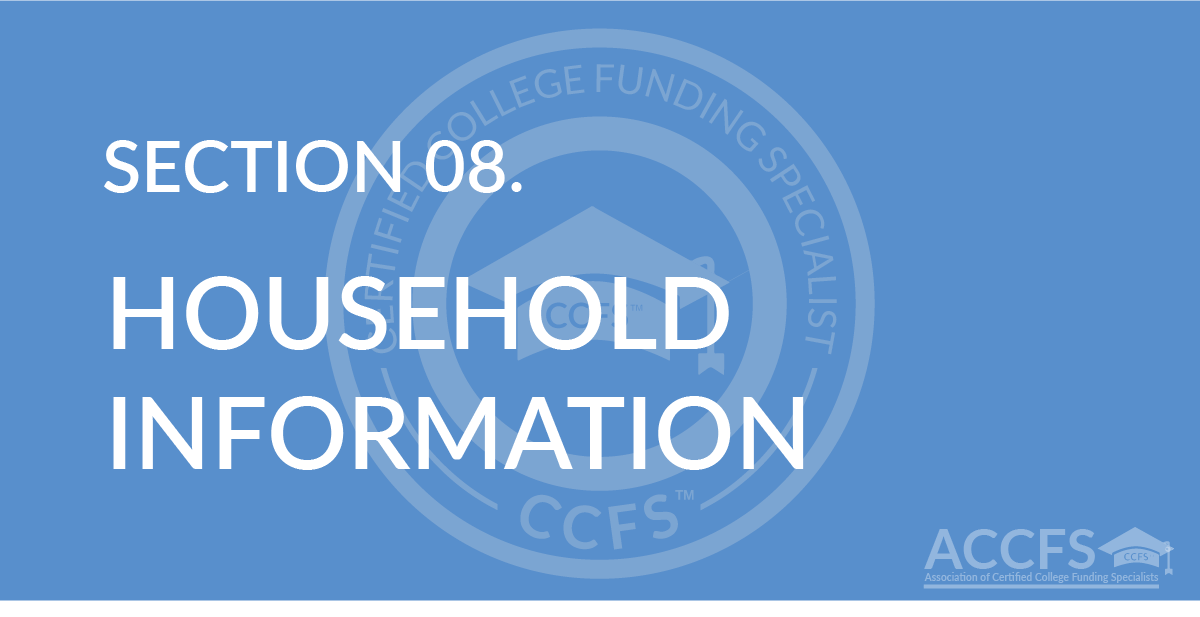
Household Information
How your client’s household information (the size of family and the number of students attending college) is assessed in the Expected Family Contribution (EFC) financial aid formulas.
Section 9
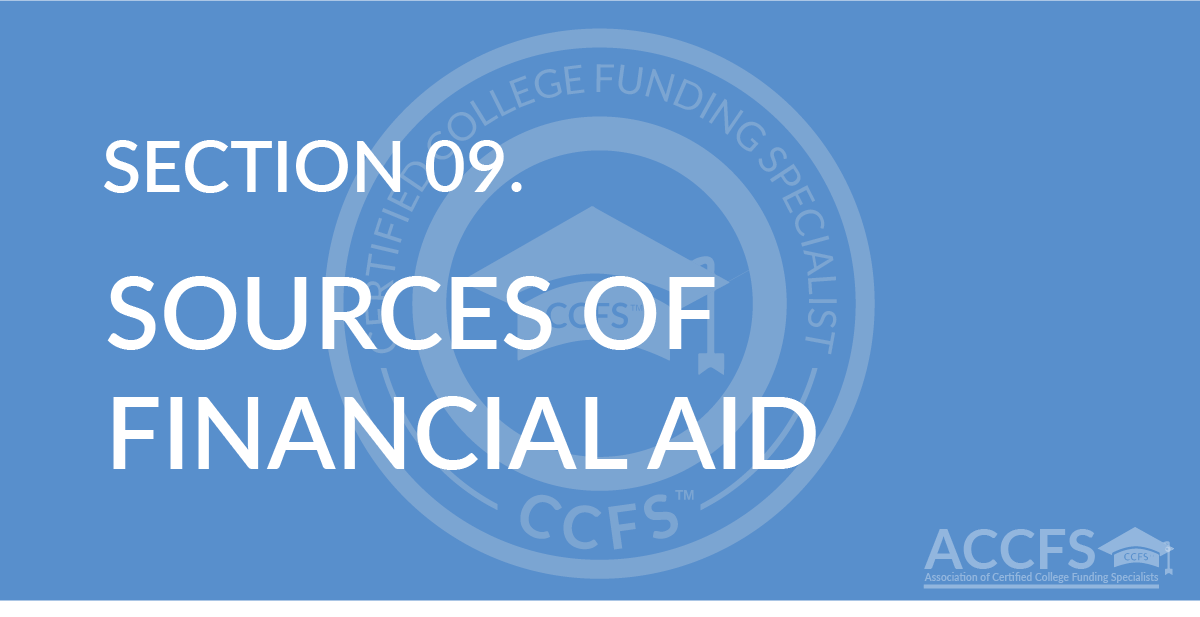
Sources of Financial Aid
Detailed analysis of the types and amounts of grants, scholarships, and loans given by the federal and state governments, and the colleges.
Section 10
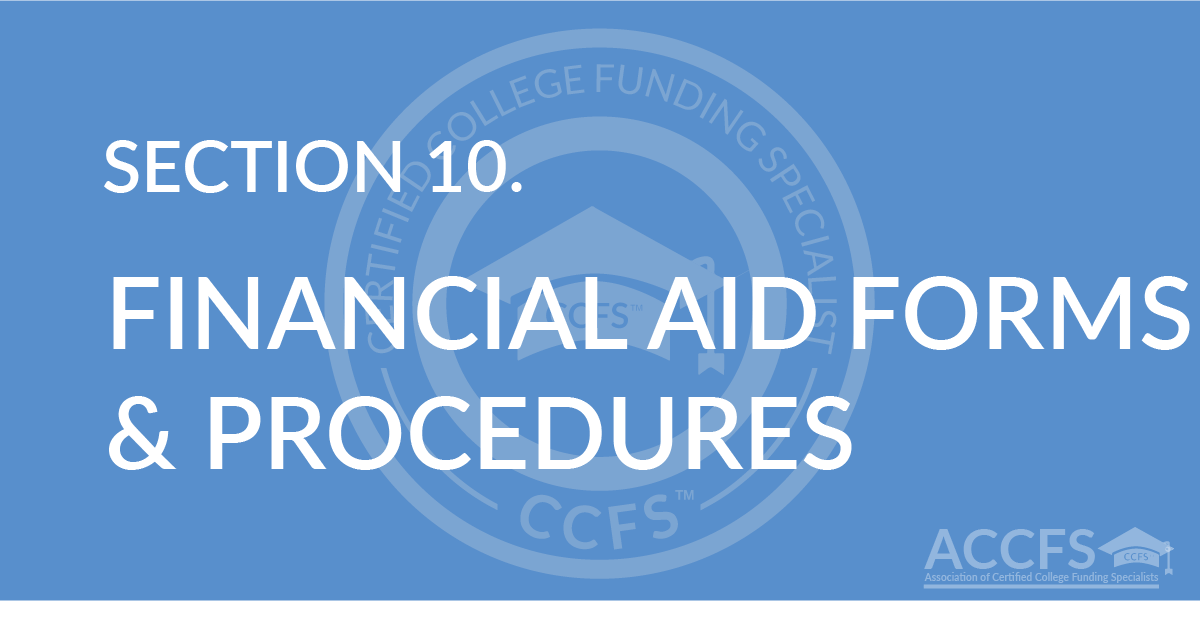
Financial Aid Forms and Procedures
Detailed analysis of the financial aid process and application forms that colleges use to distribute financial aid, such as the Free Application for Federal Student Aid (FAFSA), and the CSS PROFILE financial aid forms.
Section 11
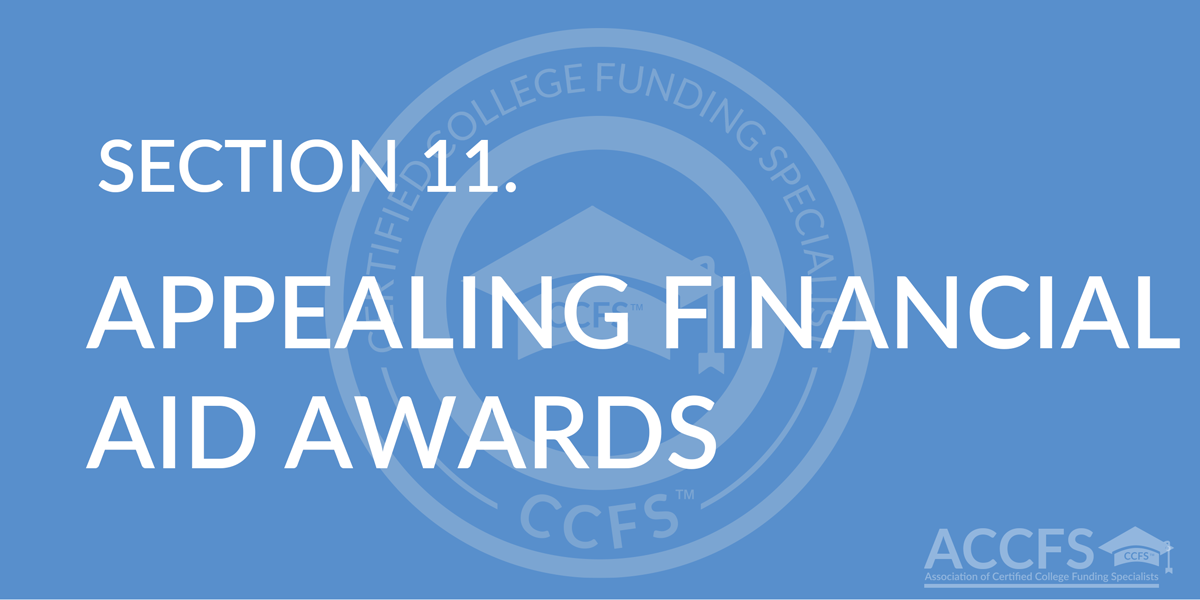
Appealing Financial Aid Awards
How good students can actually use the “appeal process” to request additional grant and scholarship money than they received on their financial aid award letter.
Section 12
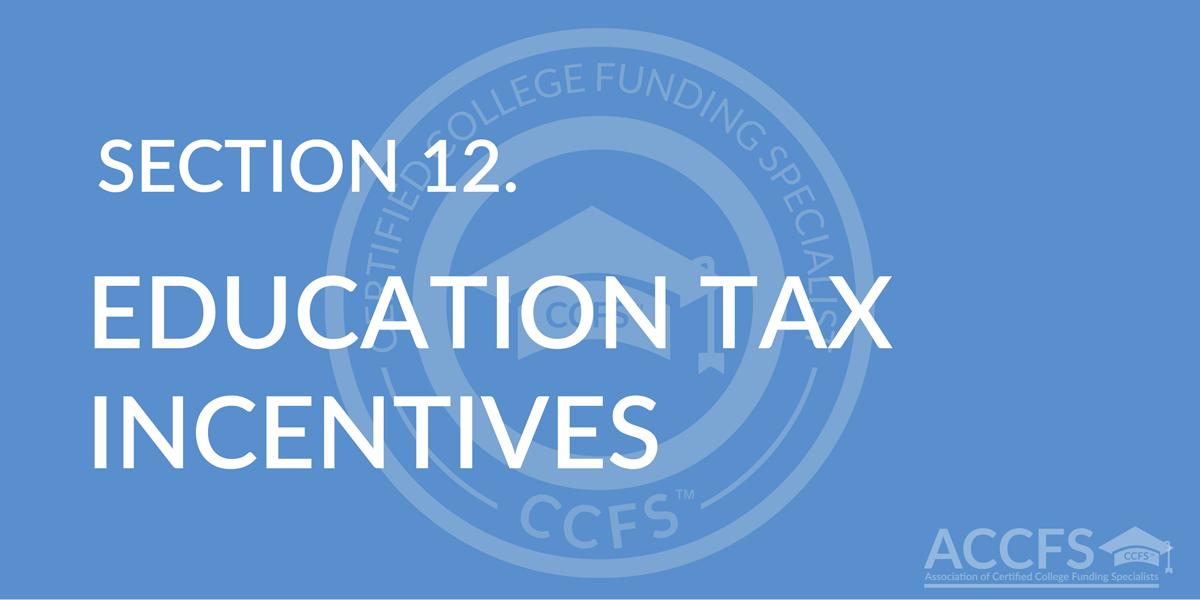
Education Tax Incentives
Detailed analysis of the types and amounts of IRS Education Tax Incentives, and how they all function together to cut college costs.
Section 13
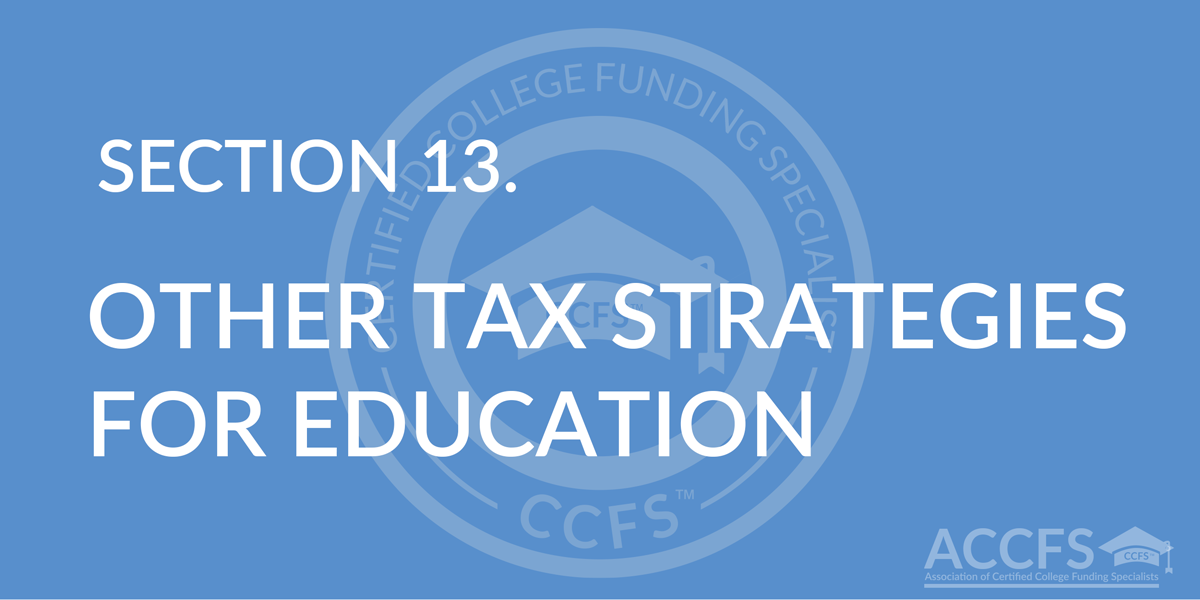
Other Tax Strategies for Education
How income shifting and other tax strategies can be used to SAVE and PAY for college costs.
Section 14
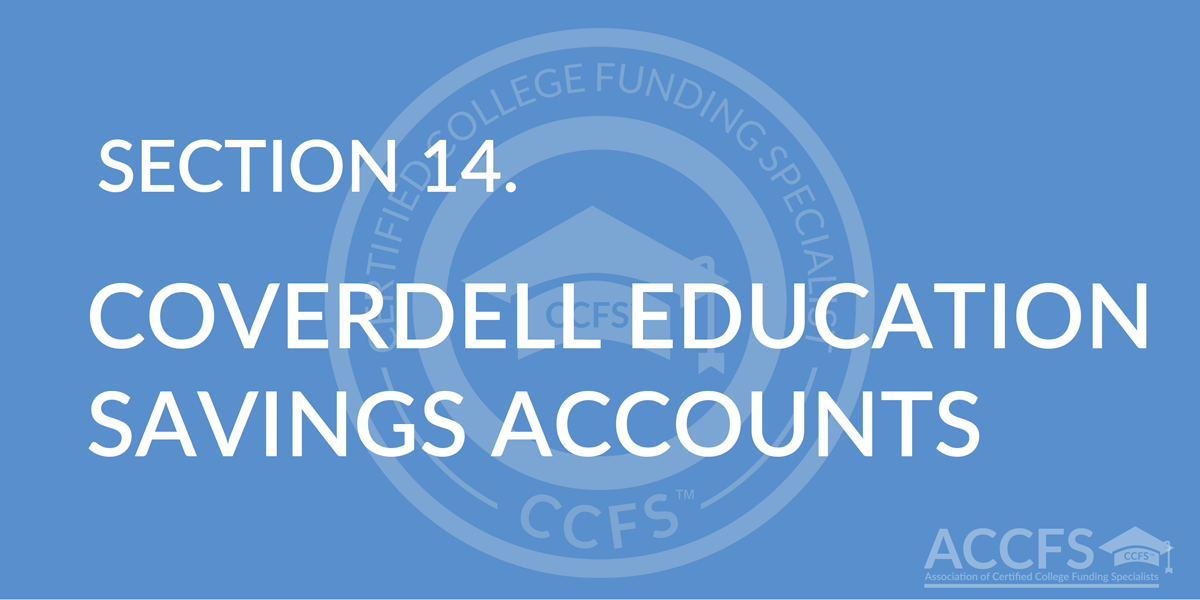
Coverdell Education Savings Accounts
The rules, regulations, and tax implications of the Coverdell Education Savings Account and how it can be used to save and pay for college expenses without affecting financial aid eligibility.
Section 15
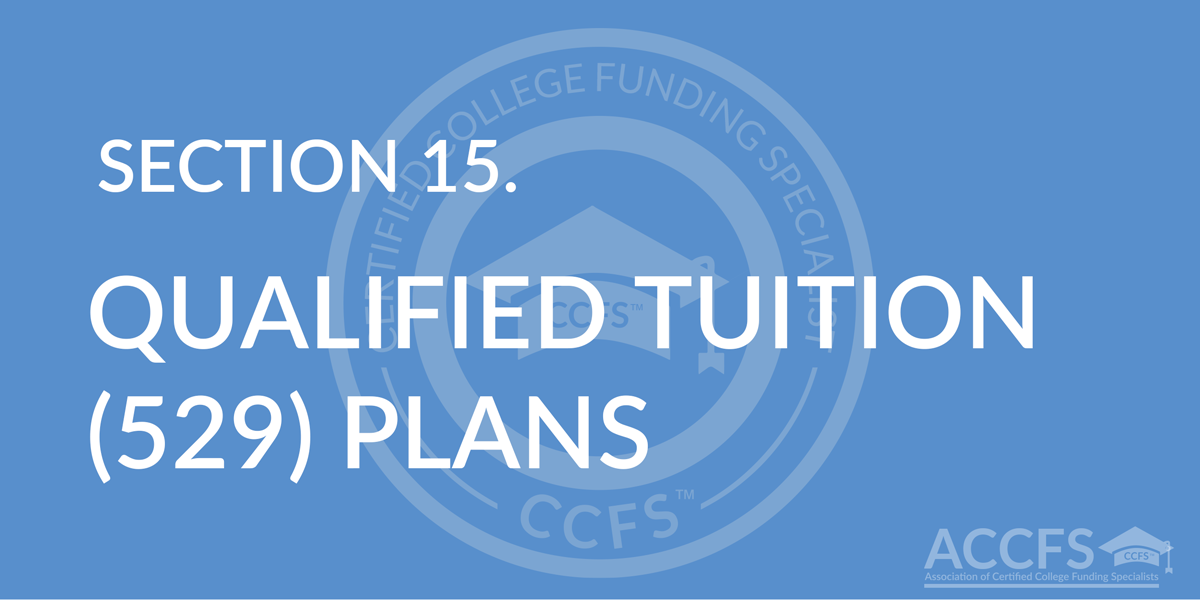
Qualified Tuition (529) Plans
The rules, regulations, and tax implications of the Qualified Tuition (529) Plan and how it can be used to save and pay for college expenses without affecting financial aid eligibility.
Section 16
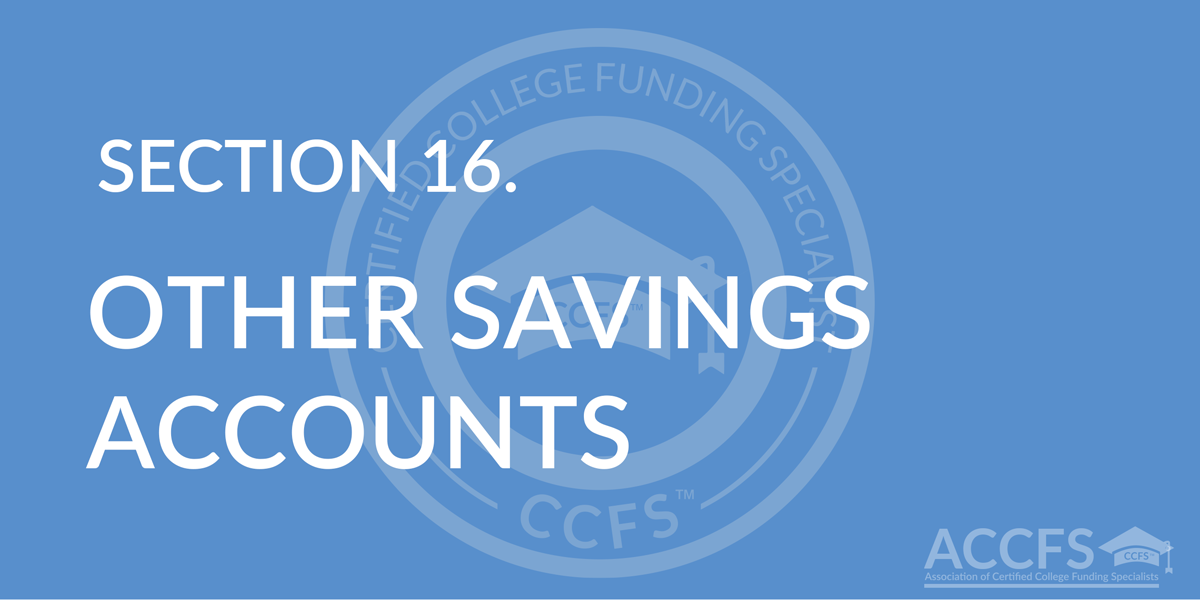
Other Savings Accounts
The rules, regulations, and tax implications of other college savings accounts, such as custodial and trust accounts, IRAs, and education savings bonds; and how they can be used to save and pay for college expenses without affecting financial aid eligibil

Ron Them
Instructor Ron developed the CCFS (Certified College Funding Specialist) designation. For over 25 years, the nation's leading financial advisors, broker/dealers, and major media outlets have been using his research, funding strategies, training, and insight. Ron is highly regarded as an expert in the college funding field.
